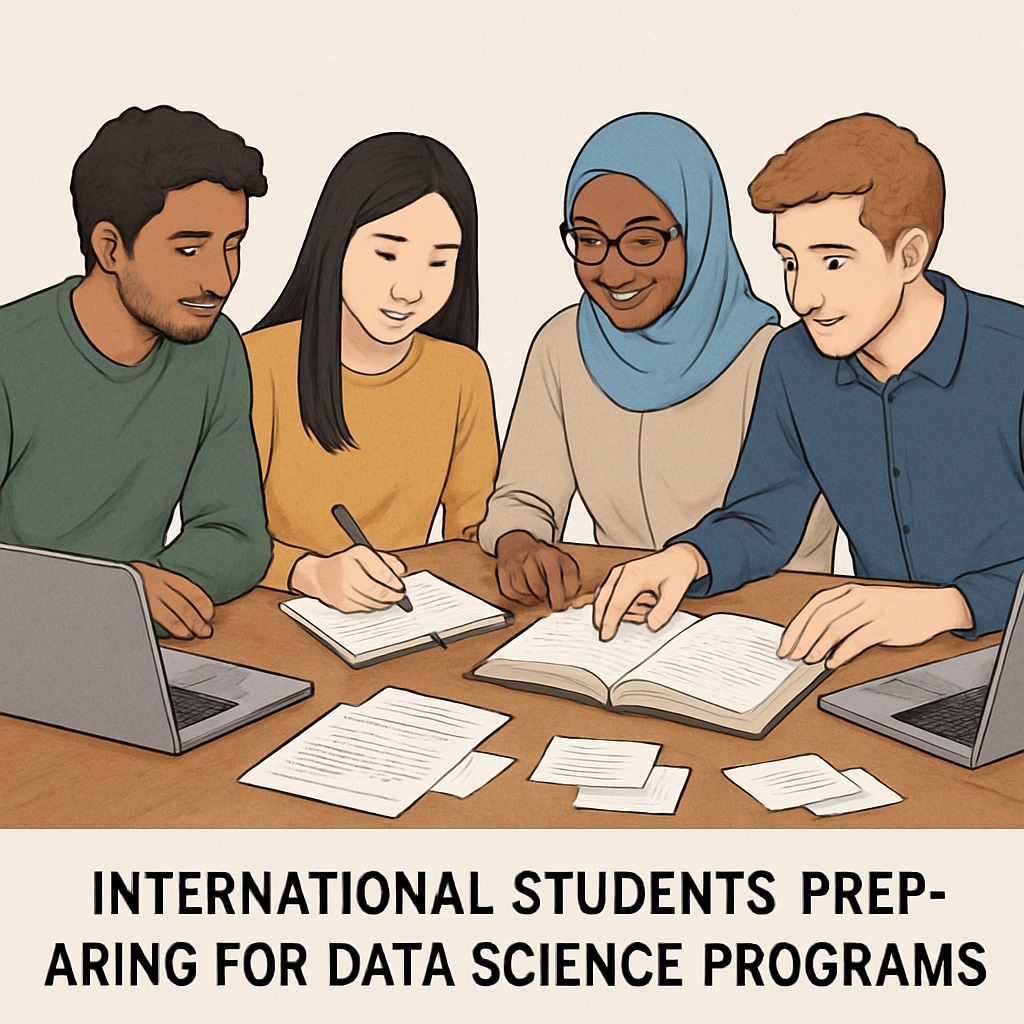For international students, applying to undergraduate data science programs at U.S. universities can seem both exciting and daunting. The field of data science has grown exponentially in recent years, and universities are increasingly offering specialized programs to meet the rising demand. This article breaks down the key requirements and strategies for international students, covering academic preparation, standardized tests, and top universities offering data science degrees. By following this guide, you can navigate the complexities of university applications and take a confident step toward your academic goals.
Understanding the Core Academic Requirements
Before applying to a data science program, it’s essential to understand the academic prerequisites. Most universities expect a strong foundation in mathematics, computer science, and statistics. High school coursework in calculus, linear algebra, and programming languages like Python or R can give you a competitive edge. Additionally, some institutions may require prior coursework or experience in subjects like machine learning or data visualization.
Beyond technical skills, it’s important to demonstrate a well-rounded academic profile. For example, courses in communication, economics, or business can highlight your ability to apply data science concepts in practical contexts. Strong grades in these areas will not only improve your GPA but also reflect your readiness for the interdisciplinary nature of data science.

Standardized Testing: What You Need to Know
Standardized tests like the SAT or ACT are often required for undergraduate admissions in the U.S. For data science programs, strong scores in the math and science sections are particularly important. Aim for scores that meet or exceed the average range for your target universities. Additionally, if English is not your first language, you will need to take an English proficiency test such as the TOEFL or IELTS. These scores demonstrate your ability to succeed in an English-speaking academic environment.
- SAT/ACT: Focus on achieving high scores in mathematics and critical reading sections.
- TOEFL/IELTS: Many universities require a minimum TOEFL score of 80-100 or an IELTS score of 6.5-7.0.
- Optional Tests: Some schools may recommend SAT Subject Tests in Mathematics or Computer Science, which can further strengthen your application.

Top Universities for Data Science Programs
Choosing the right university is a critical step in your application process. The U.S. is home to many institutions offering excellent data science programs. Below are a few top schools known for their strong curriculum and research opportunities in this field:
- University of California, Berkeley: Offers a renowned data science program with a focus on interdisciplinary applications.
- Massachusetts Institute of Technology (MIT): Known for cutting-edge research and state-of-the-art facilities in data science and artificial intelligence.
- Stanford University: Provides robust coursework and hands-on projects in data science, machine learning, and big data analytics.
- Columbia University: Offers a well-rounded program emphasizing the practical implementation of data science techniques.
Research each university’s specific program offerings, faculty expertise, and campus resources to determine which aligns best with your academic and career goals.
Strategies for a Standout Application
To differentiate yourself from other applicants, focus on creating a compelling application that highlights your unique strengths and experiences. Here are some tips:
- Write a Strong Personal Statement: Use your essay to explain your passion for data science and how your background has prepared you for success in this field.
- Highlight Extracurricular Activities: Showcase your involvement in coding competitions, research projects, or internships related to data science.
- Secure Strong Letters of Recommendation: Choose teachers or mentors who can attest to your technical skills, academic performance, and potential for success.
- Prepare a Portfolio: If possible, create a portfolio showcasing your data science projects, such as predictive models, data visualizations, or coding repositories.
Remember, your application should reflect not only your technical abilities but also your creativity, problem-solving skills, and enthusiasm for learning.
Conclusion: Turning Your Data Science Dream into Reality
Applying to a data science undergraduate program as an international student may seem challenging, but with proper preparation and strategy, it is entirely achievable. By focusing on academic excellence, excelling in standardized tests, and crafting a standout application, you can position yourself for success in this competitive field. Start your journey today, and take the first step toward a rewarding career in data science.
As a final tip, seek advice from school counselors, alumni, or academic advisors to gain insights into the application process. With determination and the right resources, your data science dream can become a reality.
Readability guidance: Use short paragraphs, bullet points, and clear transitions to maintain engagement. Focus on actionable advice and practical examples to support international students navigating the application process.


